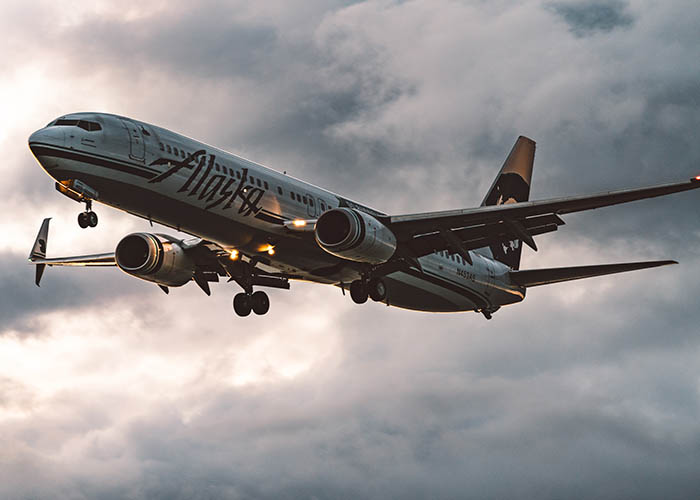If you’re somebody who takes at least one trip a year, has a credit card, but isn’t using points and miles for travel, you’re already doing it wrong! 😉 The credit card and points game can be a complicated one, especially for those who are interested in some serious travel-hacking, but it doesn’t have to be! Understanding that not all credit cards are created equal when it comes to travel (among other things), and knowing which card is best for you and your lifestyle is the first step to choosing the right card for you. In this blog post, I break down the best credit cards for travel, in addition to when and how to use them.
Not American? I also cover the best travel cards for Canadians at the bottom of this post. Below that, you’ll find answers to frequently asked questions about opening and using cards for travel.
The Best Credit Cards for Travel

Please note: sign up bonuses and and benefits are subject to change. Click the link for each card for the most up-to-date offers.
Overall best credit card for travel if your monthly expenses are at least $1,300:
– Chase Sapphire Reserve –
This is a great “starter” card and perfect for anyone who is unmarried/without children (i.e. fewer expenses) and/or enjoys dining out often.
How this card works: You will earn 3 points per dollar spent on travel and dining worldwide, and 1 point per dollar on all other purchases.
As a sign-up bonus, you will earn: 60K points after spending $4,000 in 3 months.
Total potential earnings within the first 3 months: 72K points ($1080.00 value after valuing each point at 1.5 cents) after meeting your $4,000 threshold. (3 points x $4,000 = 12,00 points + 60k bonus points.)
This can get you, for example: 2 round-trip tickets from LA to NYC or 1 round-trip ticket in business class. Other reasons and perks for signing up to this card:
- $300 annual travel credit as reimbursement for travel purchases charged to your card each account anniversary.
- Complimentary Priority Pass Select Membership for airport lounge access.
- $100 Global Entry fee reimbursement, which is valid for 5 years and comes with TSA Pre-Check!
- Ability to transfer your points to Airlines (United, Singapore Airlines and British Airways to name a few).
- You can redeem your points for a 1.5 cents per point value (50% higher than most other credit cards) on any flight found through the Chase Travel Portal (run by Expedia.com).
- You’ll earn 10 points per dollar on Lyft rides and will get reimbursed for a Lyft Pink subscription ($20 a month and includes 15% off all Lyft rides, free scooter rides, and other perks.)
- Premier “primary” car rental insurance worldwide.
Potential cons/drawbacks: The downside of this card is the hefty $550 annual fee, but is technically offset with the $300 travel credit + $100 Global Entry credit, leaving you with a balance of $150 out of pocket for the card. That said, I value the Priority Pass at a minimum $100, if not more depending on how much you travel. Plus all the other perks and benefits outweigh the remaining $50 out of pocket.
What you should consider: The first year is a no brainer as the bonus point value will really offset all of the $550 annual fee. The 2nd year and onwards is the question– how much do you value your Priority Pass lounge membership and the ability to redeem your points at the 1.5 cent per point value, (along with all the other benefits)? I personally do not recommend keeping this card for more than a year, so after the first year, I suggest downgrading to either a Sapphire card with no annual fee, or switching to the Chase Freedom Card with no annual fee.

Overall best card for travel if your monthly expenses are at least $5,000:
– Chase Ink Business Preferred –
This is a good option for a credit card to open after your one year with your Chase Sapphire Reserve Card is up. In fact, if your monthly expenses are at least $5,000, I recommend skipping the card above and going straight to this one, and then opening the Chase Sapphire Reserve if you want an additional card/signup bonus. This card is a good option if you have higher expenses, share finances with someone, or run a business that has higher expenses
How this card works: You will earn 3 points total for each $1 of the first $150,000 spent each account anniversary year on combined purchases in the following rewards categories: shipping; advertising purchases made with social media sites and search engines; travel; car rentals; internet, cable, and phone services. 1 point per dollar on all other purchases.
As a sign-up bonus, you will earn: 100K points for spending $15K in first 3 months.
Total potential earnings in the first 3 months: 145k points valued $2,175 after valuing each point at 1.5 cents. (3 x $15,000 = 45k points + 100k sign-up bonus.)
This can get you, for example: round-trip tickets to Europe or Asia in business class.
Other reasons and perks for signing up to this card:
- You and any employees (if you have them) listed on your phone bill are covered for up to $600 in theft or damages per claim, provided the number is listed on your monthly bill and you pay your bill with your card. There’s a limit of three claims per 12-month period, with a $100 deductible per claim.
- You can combine your points from this card with your Chase Sapphire Reserve

If you really want to go in on the credit card game, here’s where things get juicy.
How this card works: You will earn 5X points on flights and prepaid hotels on amextravel.com. 1.5 points per dollar on eligible purchases of $5,000 or more, up to 1 million additional points per year. 1 point per dollar on all other purchases.
As a sign-up bonus, you will earn: 120,000 Membership Rewards points after you spend $15,000 on eligible purchases with the Business Platinum Card within the first 3 months.
Total potential earnings in the first 3 months: This card will give you the potential to earn 135K points ($15,000 = 15k points + 120k bonus
points) that can be transferred to multiple airlines, giving them an estimated value of 1.5 cents per point valued at $2,025 total.
This can get you, for example: round-trip business class tickets to Tokyo, using this method.
Other reasons and perks for signing up to this card:
- $200 airline credit for baggage fees and more after selecting one of the qualifying airline.
- $189 Clear credit.
- American Express Global Lounge Collection, offering more lounge options than any other card on the market, including AmEx network lounges such as The Centurion Lounge and The International American Express lounges, or partner lounges including Delta Sky Club when flying Delta, or Priority PassTSelect lounge once enrolled.
- $400 credit per calendar year on Dell.com ($200 every 6 months.)
- Collision car rental insurance
- Trip delay insurance.
- + many more perks and benefits.
Potential cons/drawbacks: There is a $595 annual fee BUT it can be offset by the $200 airline fee credit and the bonus points earned for the first year. For the second year and onwards, you will have to decide if you value the WeWork membership, lounge access and potential to earn 5 points per dollar on flights at the amount of $395. ($595 annual fee – $200 airline credit = $395) If you don’t think it’s worth it, you can downgrade this card to the no-fee Green Card.

Best Travel Credit Cards in Canada
Option 1: TD Aeroplan Visa Infinite* Credit Card
This is a good credit card for people who don’t want to pay an annual fee (in the first year.*)
How this card works: You’ll earn 1.5 miles per dollar on groceries, gas, and drug store purchases. 1 mile per dollar on everything else.
As a sign-up bonus, you will earn: up to 30K Aeroplan miles for opening this card.
Total potential earnings in the first 3 months: 33k miles. (You will earn 15k Aeroplan miles when you make your first purchase and you’ll earn 5k Areoplan miles in each of the first 3 months when you spend the minimum of $1,000 per month.)
This can get you, for example: 1 economy round-trip flight from anywhere in Canada to anywhere in North America (or 1 business class ticket one way.)
Other reasons and perks for signing up to this card:
- The great thing about this card is the annual fee is waived for the first year. (Which is very rare with Canadian cards.)
- You will also receive Travel Medical Insurance with this card.
- When on an award flight, you’ll get:
- One complimentary checked bag.
- Priority check-in and priority boarding.
- One annual One-Time Guest Access to an Air Canada Maple Leaf Lounge.
Potential cons/drawbacks: *$120 annual fee after the first year. (I recommend downgrading to a no-fee card after the first year.)

How this card works: You will earn 3 miles on every dollar you spend on Alaska Airline tickets. 1 mile per dollar on all other purchases.
As a sign-up bonus, you will earn: 30K Alaska points when you spend $1,000 CAD in the first 3 months. Every year on your account anniversary you will also earn Alaska’s companion fare, which is: buy one round-trip ticket and get one more for $99 (USD) (plus tax and fees comes out to $121 USD.)
Total potential earnings in the first 3 months: 31k miles. (30k bonus miles when you spend $1,000 in the first 3 months + the 1000 miles for spending $,1000)
This can get you, for example: 1 economy round-trip flight from anywhere in Canada to anywhere in North America (or 1 business class ticket one way.)
Other reasons and perks for signing up to this card:
-
Alaska points are arguably the most valuable points out there due to their partner redemption chart (which includes partner airlines like Qantas, Emirates, Fiji Airways and more.)
- Complimentary checked bag for up to 6 passengers on the same Alaska Airlines reservation.
- It has a low spending threshold ($1,000 in the first 3 months).
- Reduced annual fee.
Potential cons/drawbacks: This card has a $99 CAD annual fee but if you apply through the credit card link above (or just click here) you will get a $50 rebate. After that, it goes back up to $99.

FAQ: Frequently Asked Questions about Credit Cards for Travel
Q: Will this negatively affect my credit score?
A: Opening and closing for credit cards can only affect 10% of your total credit score (which is very little.) If you don’t pay on your bills or if you spend over 50% of your credit limit this will negatively impact your credit score. If you make your minimum monthly payments and don’t go over 50% your credit score will be in good standing.
Q: What happens when I don’t want a card anymore?
A: You have the option of downgrading the card to a card of less or no annual fee and never using it (recommended because this will not affect your credit score); or closing the card which can affect the 10% of your credit score mentioned above.
Q: How many credit cards should, or can I have? How many is too many credit cards?
A: As many as you can handle without losing track. Many serious travel hackers have up to 30-50 credit cards open at one time. Obviously, this is for the more experienced and financially responsible. When starting out, beginners should start by applying for 1 – 2 cards every three months (so long as you can handle it.) If you want to just stick with just one card, choose the one from this post that best suits your needs.
Q: What is the difference between points and miles?
A: Miles are earned by airline credit cards, points are earned by regular credit cards, but points can be transferred to miles.
Q: What else should I know?
A: Set up automatic minimum payments on your cards to avoid getting stuck with late fees (late fees are how credit card companies make their money.)
Use spreadsheets to stay organized if managing multiple cards.
Switch to paperless billing, especially for cards you have downgraded and are no longer using (but don’t want to close.)
I hope you found this post helpful in guiding you to choose the right credit card for you. If you have any other questions feel free to leave them below!
Read Next: How to Travel Hack More Credit Card Points Travel Hack for Business Class Flights How I Travel-Hacked My Way to Bora Bora with Credit Card Points






